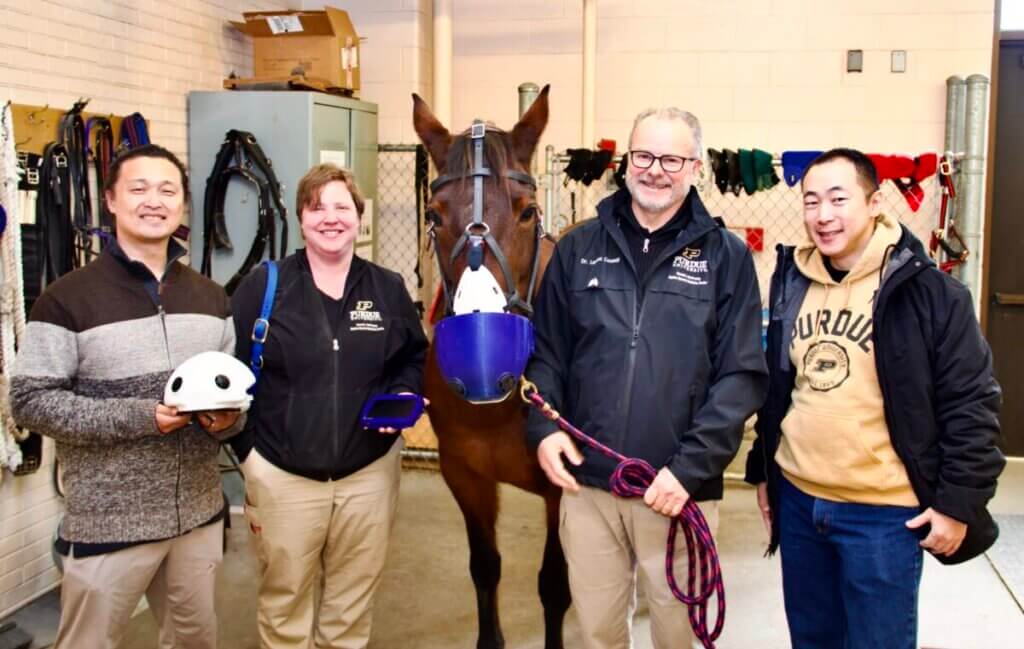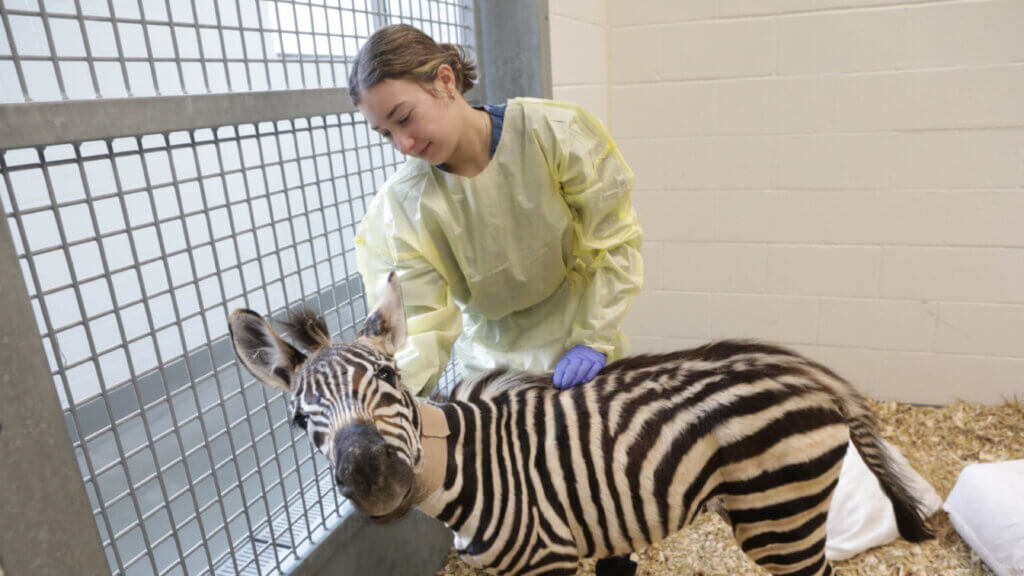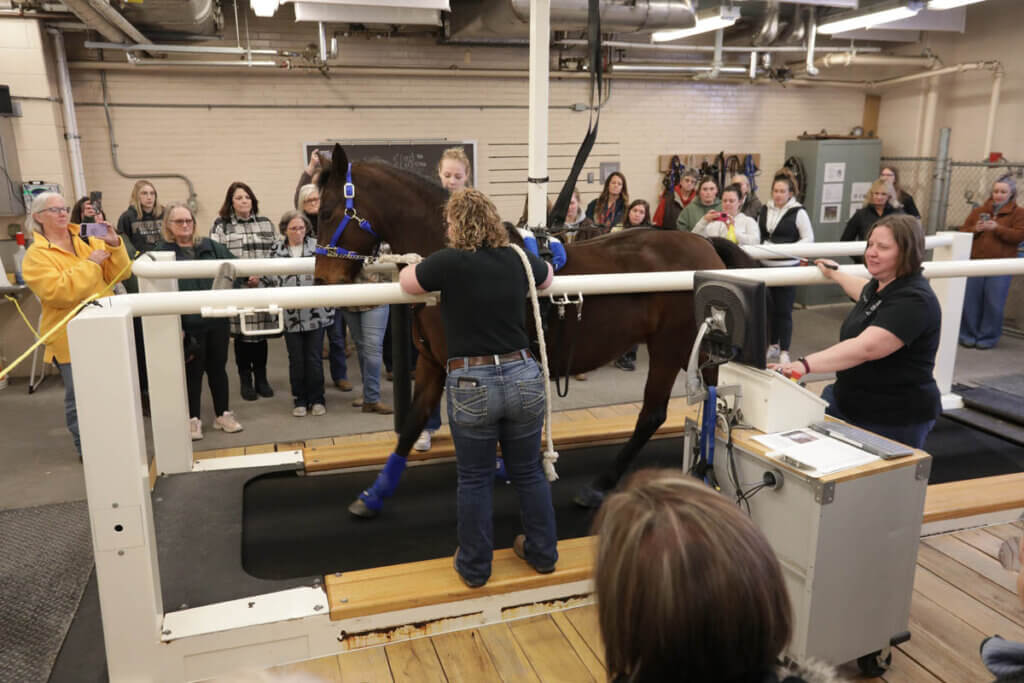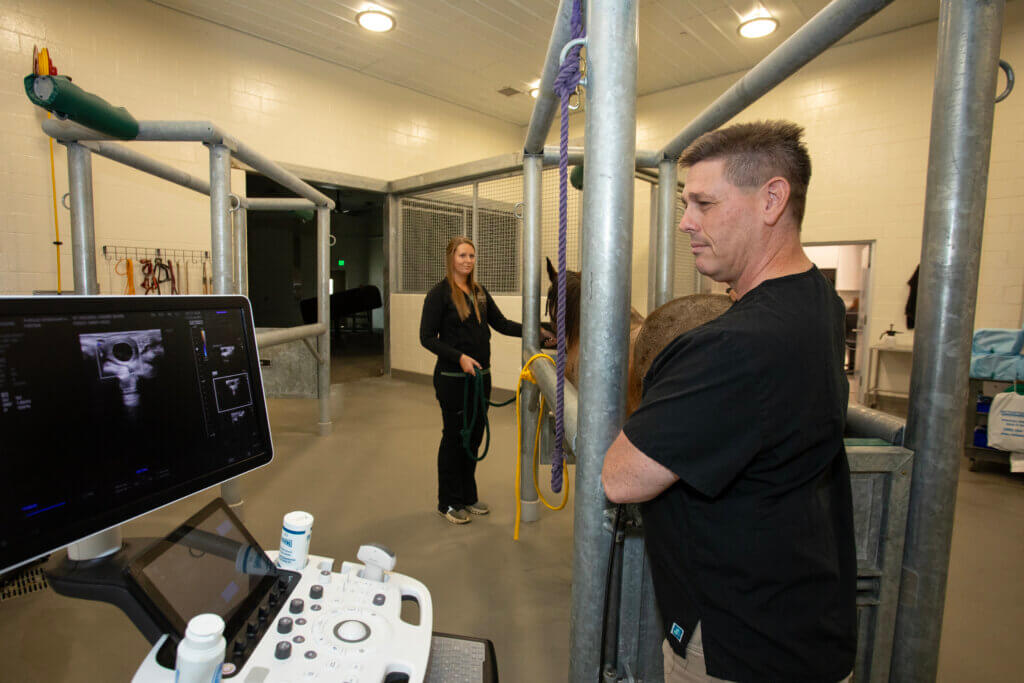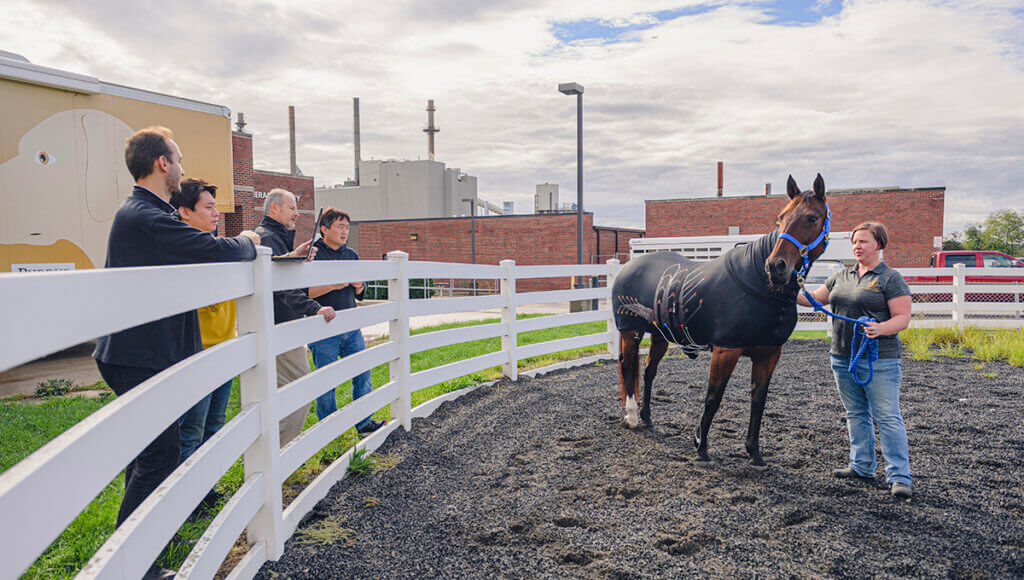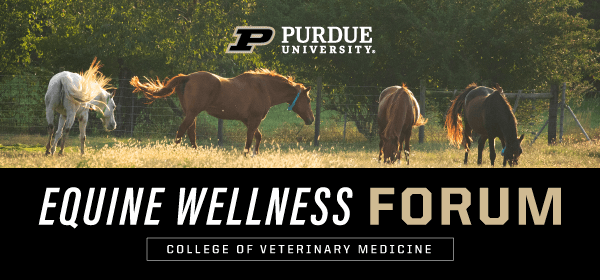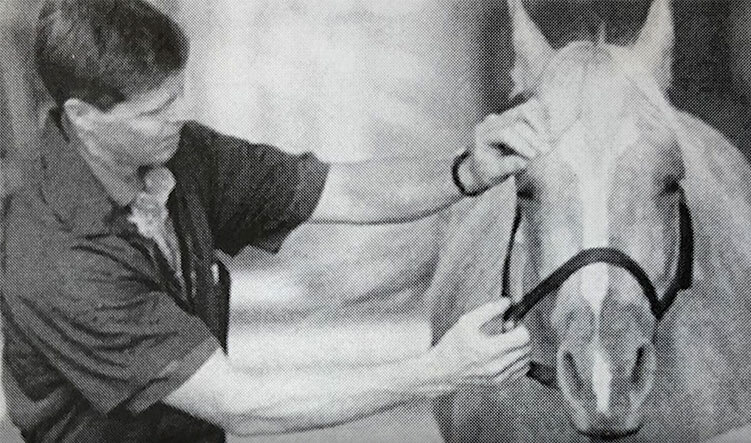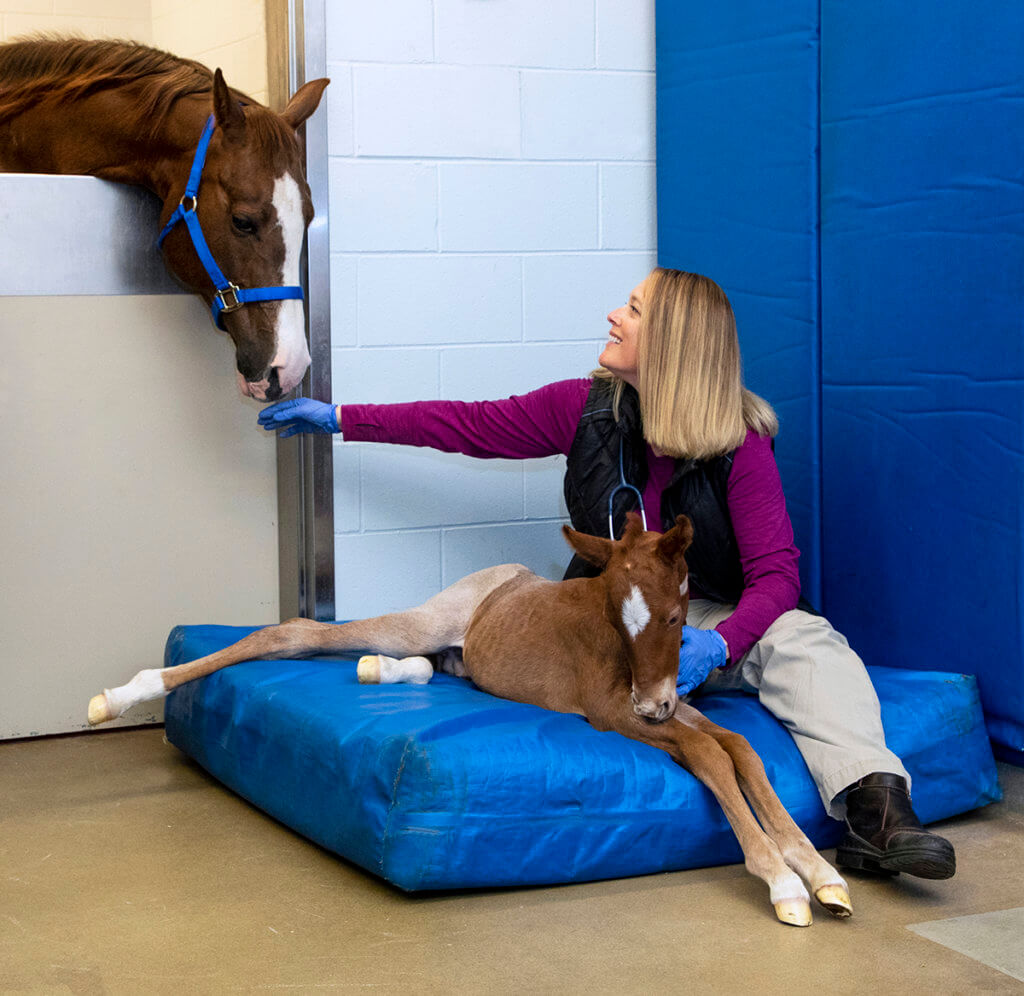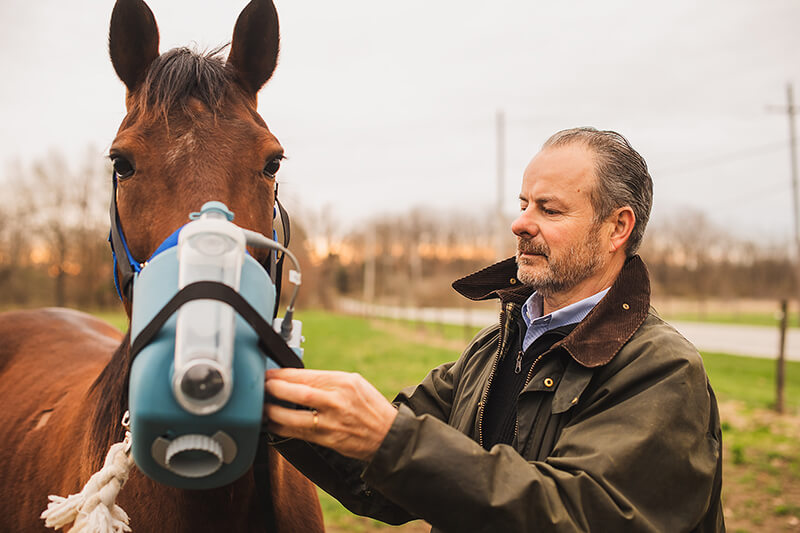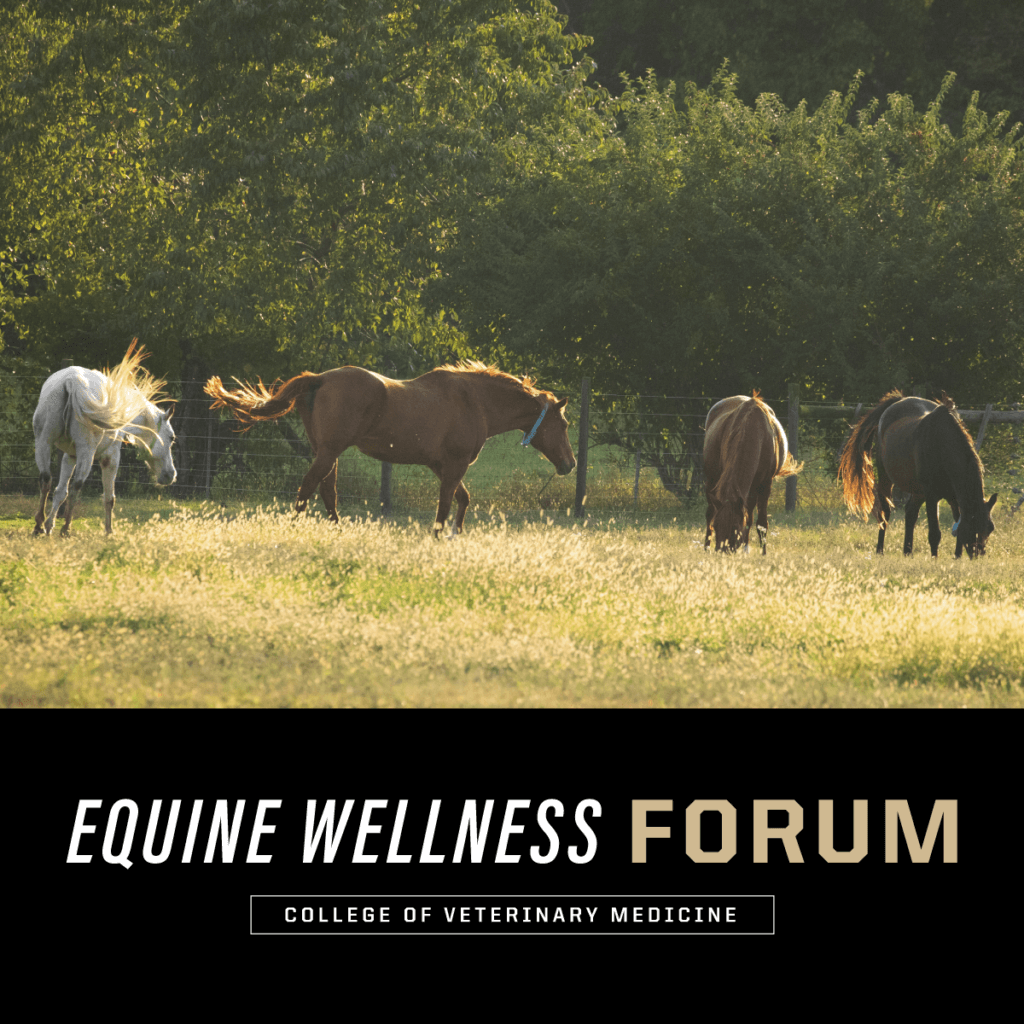Tag: Equine
Asthmatic Horses Can Breathe Easier Thanks to Purdue Health and Human Sciences and College of Veterinary Medicine
July 25, 2025
A collaboration between the Purdue University School of Health Sciences and the Purdue College of Veterinary Medicine will enable horses to breathe easier. In turn, their human owners will too.
Zebra Foal Gets Lifesaving Help at Purdue University Equine Hospital
March 7, 2025
It’s not surprising to see a foal receiving emergency care at the Purdue University Equine Hospital during foaling season. The hospital’s team of expert clinicians and veterinary nurses are used to coming to the rescue when foals need special help to survive. But it was a surprise to see a foal named Marty arrive at the hospital’s Intensive Care Unit in February, because Marty is a zebra, and the hospital is in Indiana.
PVM Continuing Education for Equine Enthusiasts and Veterinary Nurses Meets with Strong Demand
July 31, 2024
Lifelong Learning programs that focused on the needs of equine industry professionals and veterinary nurses attracted strong attendance at two programs held during the first part of 2024.
With Innovative Program, Equine Specialist Helps Purdue Forge New Frontiers in Horse Reproductive Care
July 31, 2024
Scroll through the social media pages for the Purdue University College of Veterinary Medicine, and you’ll occasionally see photos, used with permission, showing proud mares with names like Sadie and Garland Superstar standing next to their glistening foals or leaning down to nuzzle them on a bed of straw just after birth. While not every new colt or filly is announced on Instagram, Facebook and LinkedIn, they are all celebrated by a team led by Dr. Justin Hayna, clinical assistant professor of equine theriogenology. A board-certified theriogenologist, Dr. Hayna and his team of veterinary nurses and veterinary medicine students provide comprehensive equine reproductive care.
A Horse Slicker is Just a Horse Slicker, of Course, of Course, Unless it Can Monitor Chronic Disease
February 4, 2022
With the exception of Mister Ed of television sitcom fame, horses can’t talk with humans about health issues. Now, a first-of-its-kind horse slicker with a specially designed liner could be able to “tell” the horse’s human caregivers of increasing chronic diseases.
A new study by Purdue University engineers and veterinary medical specialists explores how to convert off-the-shelf horse slickers into e-textiles that continuously monitor equine cardiac, respiratory, and muscular systems for several hours under ambulatory conditions. The study is published in the journal Advanced Materials.
All’s Well that Ended Well in the Case of PVM’s First Virtual Equine Wellness Forum
March 19, 2021
The Purdue University College of Veterinary Medicine’s annual event designed to inform horse owners and equine industry professionals about horse health issues galloped into new territory this year by going virtual. Normally held as a day-long in person program, the Equine Wellness Forum was conducted virtually, and spanned several days, with presentations given over the Zoom platform on topics ranging from basic preventative healthcare to the latest medical advancements.
Honoring A Legacy – Retiring Large Animal Clinician Recognized by Equine Enthusiasts
March 19, 2021
The 2021 Equine Wellness Forum provided a perfect opportunity for the Purdue University College of Veterinary Medicine to honor a legendary large animal clinician, for his nearly 40 years of tireless service to animals and their owners. Dr. Stephen Adams, professor of large animal surgery, will retire this summer.
Saddle Up Saturday for PVM’s Mane Event for Horse Enthusiasts
February 5, 2021
Calling all horse enthusiasts this Saturday, February 6, for the Purdue University College of Veterinary Medicine’s annual Equine Wellness Forum, which this year can be attended without leaving home or office!
Low-Dust Forages Essential for Asthmatic Horses
December 17, 2020
Researchers recently revealed that feeding Thoroughbred racehorses in training and racing certain alternatives to dry hay resulted in 30% fewer respirable dust particles in horses’ breathing zones and decreased airway inflammation. Laurent L. Couëtil, DVM, PhD, professor of Large Animal Internal Medicine and director of Equine Research Programs and Equine Sports Medicine Center at Purdue […]
All is Well with Plans for the Equine Wellness Forum
December 4, 2020
It’s “virtually” time for the Purdue University College of Veterinary Medicine’s annual Equine Wellness Forum, which this time will be held in an all virtual format beginning February 6, 2021. Registration is now open for the annual event, which is designed to inform horse owners and equine industry professionals about horse health issues ranging from basic preventative healthcare to the latest medical advancements.

